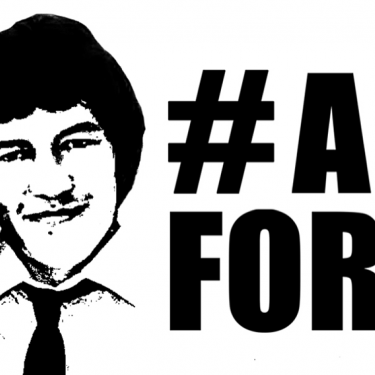Slovak democracy needs a real investigation into Kuciak murder

Reporters Without Borders (RSF) is alarmed by the situation in Slovakia six months after investigative reporter Ján Kuciak and his fiancée, Martina Kušnírová, were murdered in their home on 21 February. The investigation into their deaths has stalled and the promises to protect journalists have clearly been forgotten.
“We would need a miracle for the investigation into Ján Kuciak’s murder to reach a successful conclusion,” one of his colleagues told RSF. Despite constant calls by the couple’s families and supporters, the investigation has yet to produce any convincing results.
Worse still, many irregularities have been noted in the conduct of the case, to the point that in a joint opinion piece published on 17 August, more than 300 Slovak reporters and editors said they had “doubts about the independence of the investigation .”
They also expressed concern about the lack of “ fundamental changes to the police or to the prosecutorial bodies after the murder,” as Kuciak’s articles had shed light on suspected links between organized crime and persons close to then Prime Minister Robert Fico.
“Slovak democracy cannot dispense with a real, independent investigation,” RSF’s EU-Balkans desk said. “Those who killed Ján Kuciak and his partner must be identified and brought to justice. The continuing decline in the overall climate for the press in Slovakia is also very disturbing. The lack of progress in the investigation and the lack of a clear political will to enable Slovak journalists to work safely are becoming alarming.”
In their opinion piece, entitled “We will not allow Ján and Martina to be forgotten,” the Slovak journalists point out that not only have government officials not changed since Kuciak’s murder but “the language they use when talking to and about journalists is even harsher now.”
No official measures have been taken in the past six months with the aim of strengthening press freedom and the situation of journalists continues to worsen, especially within the public radio and TV broadcaster RTVS, where political pressure has triggered a spate of departures.
Immediately after Kuciak’s murder, the police did take special measures to protect certain journalists. Police chief Tibor Gašpar said: “If you think an attack could happen, let us know so that we can take the necessary measures to guarantee your physical safety.”
But the effects that followed these promises did not last. According to the information gathered by RSF, the past few months have seen a steady decline in the level of physical protection provided to journalists who had been threatened after Kuciak’s murder.
Slovakia has fallen sharply in RSF's latest World Press Freedom Index and is now ranked 27th out of 180 countries. Kuciak’s murder has highlighted the many problems that its journalists face.



